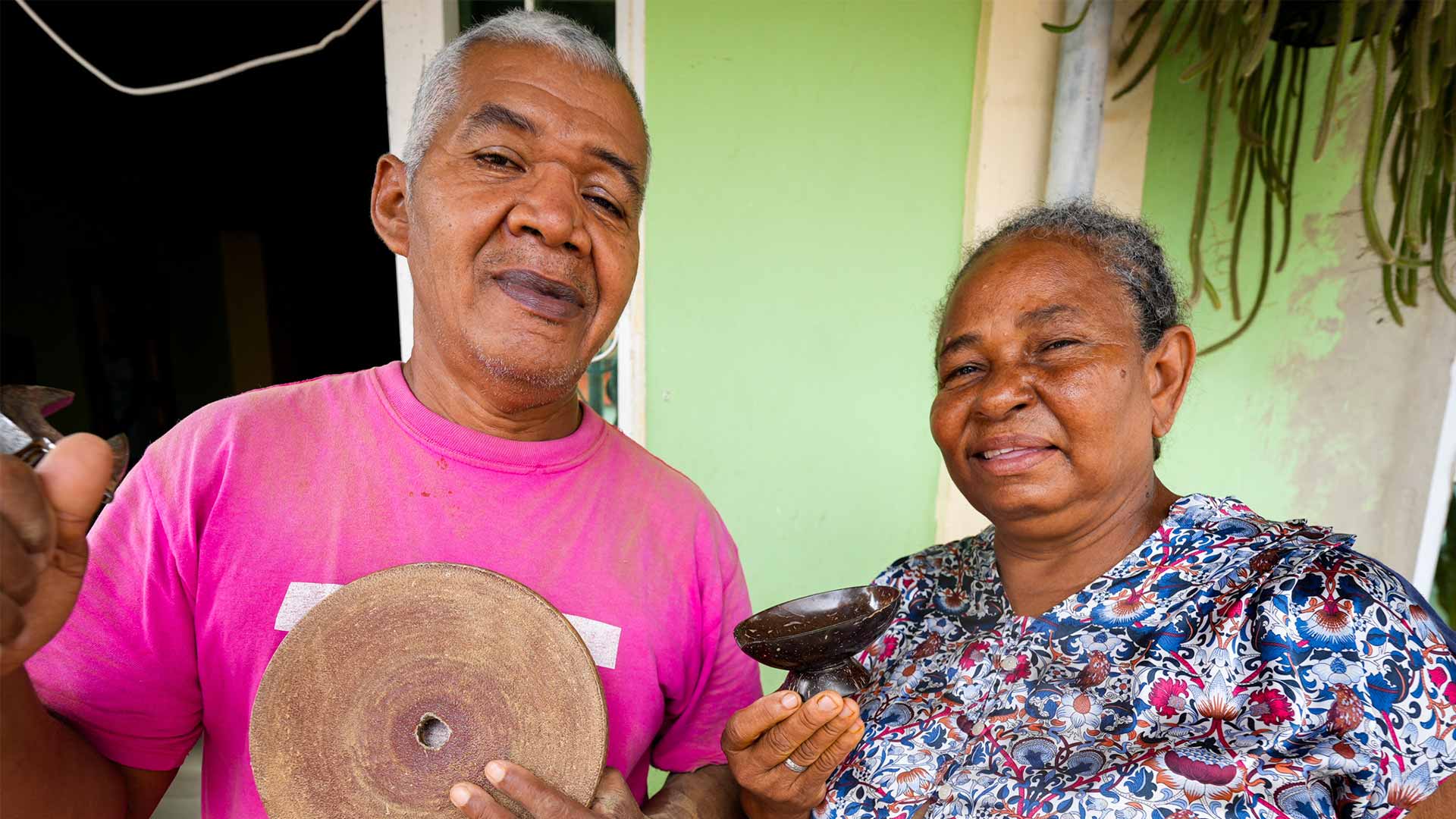
Colombia: Meeting with Maribel and Pablo, coconut artisans
Colombian coconut handicrafts
From an early age, Maribel has been roaming the streets of Cartagena, selling handicrafts and edible products such as fruit, which is very popular in the city’s historic district. That is how she met her husband, then a craftsman. From that moment on, the couple joined forces to create objects for tourists as well as for everyday use.
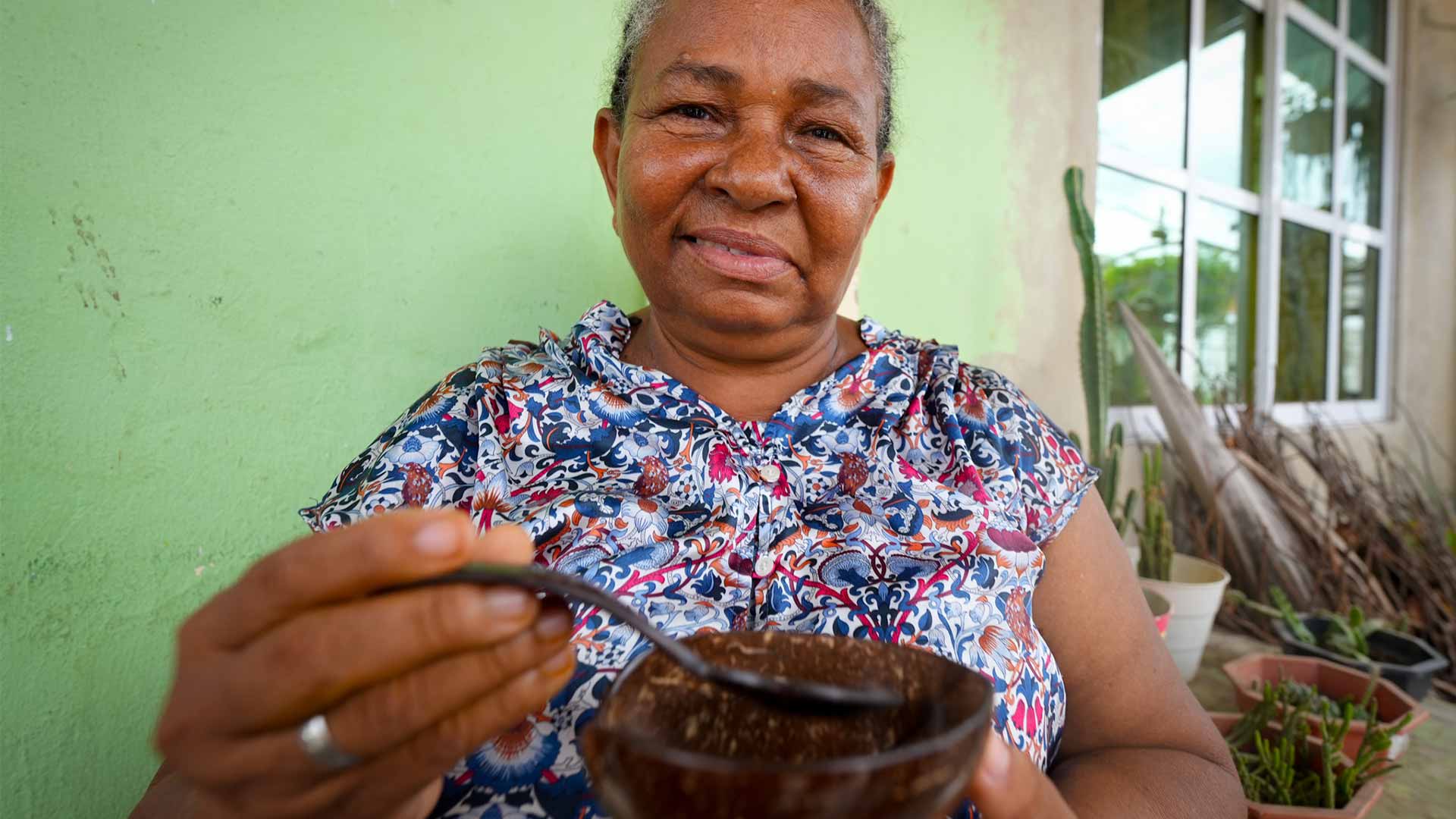
Maribel and Pablo founded their small business in 2013, specializing in the manufacture of various objects made from local raw materials. After testing several materials, they discovered coconut and specialized in it.
“I love working with coconut because it’s natural, it’s good for the environment and coconut dust doesn’t make me sick like other materials I’ve worked with in the past.” Pablo emphasizes during our meeting.
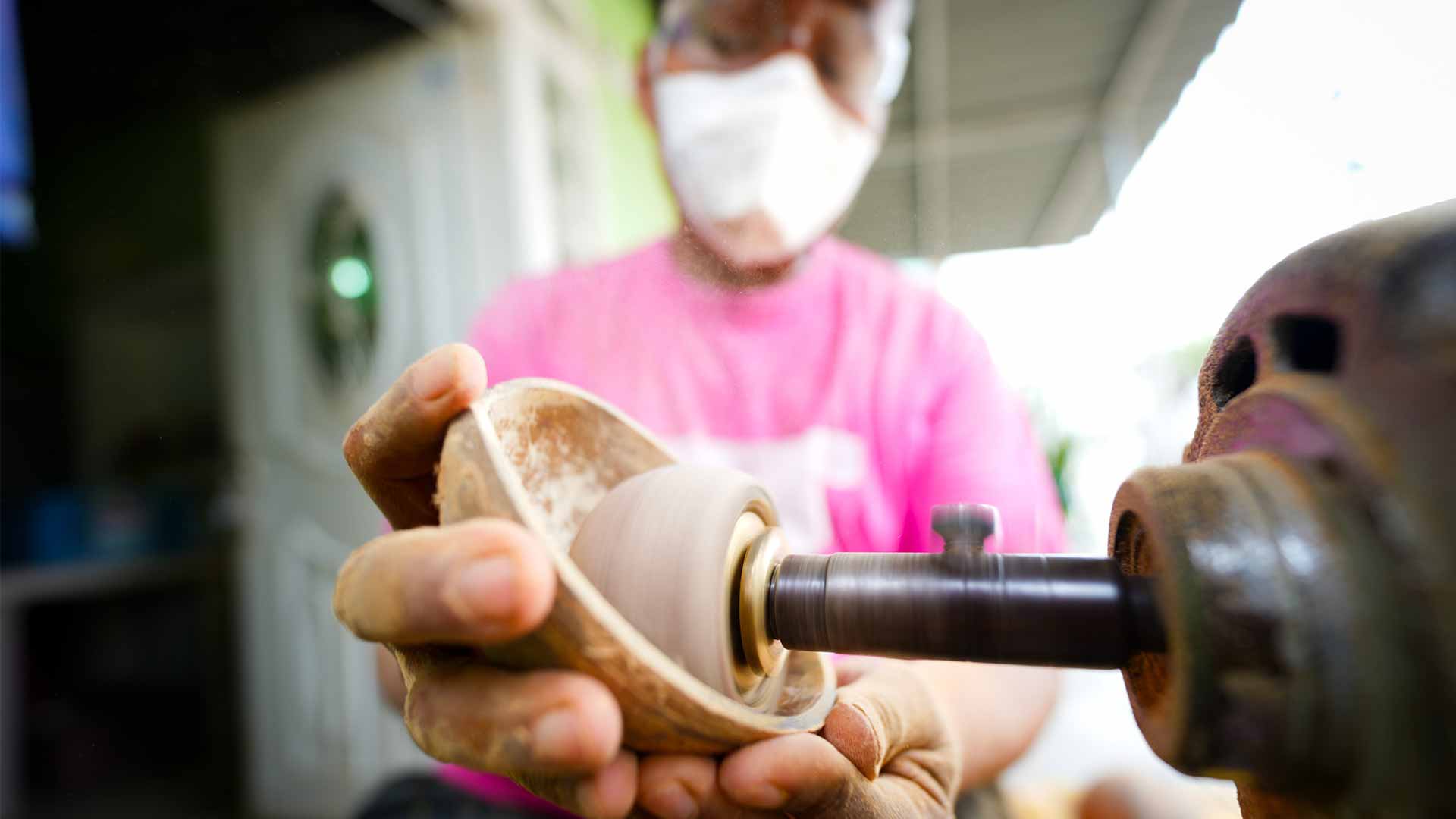
Coconut
Coconut comes from the palm tree, which produces fruit all year round. Because it can be found everywhere, all the time, coconuts are highly prized in the Caribbean, not only for consumption, but also for the creation of solid, durable objects.
“Every time we use a coconut, we take great care to keep the pulp to make coconut rice ‘el arroz con coco’ and to keep the liquid to make vitamin-enriched juice.” says Maribel.
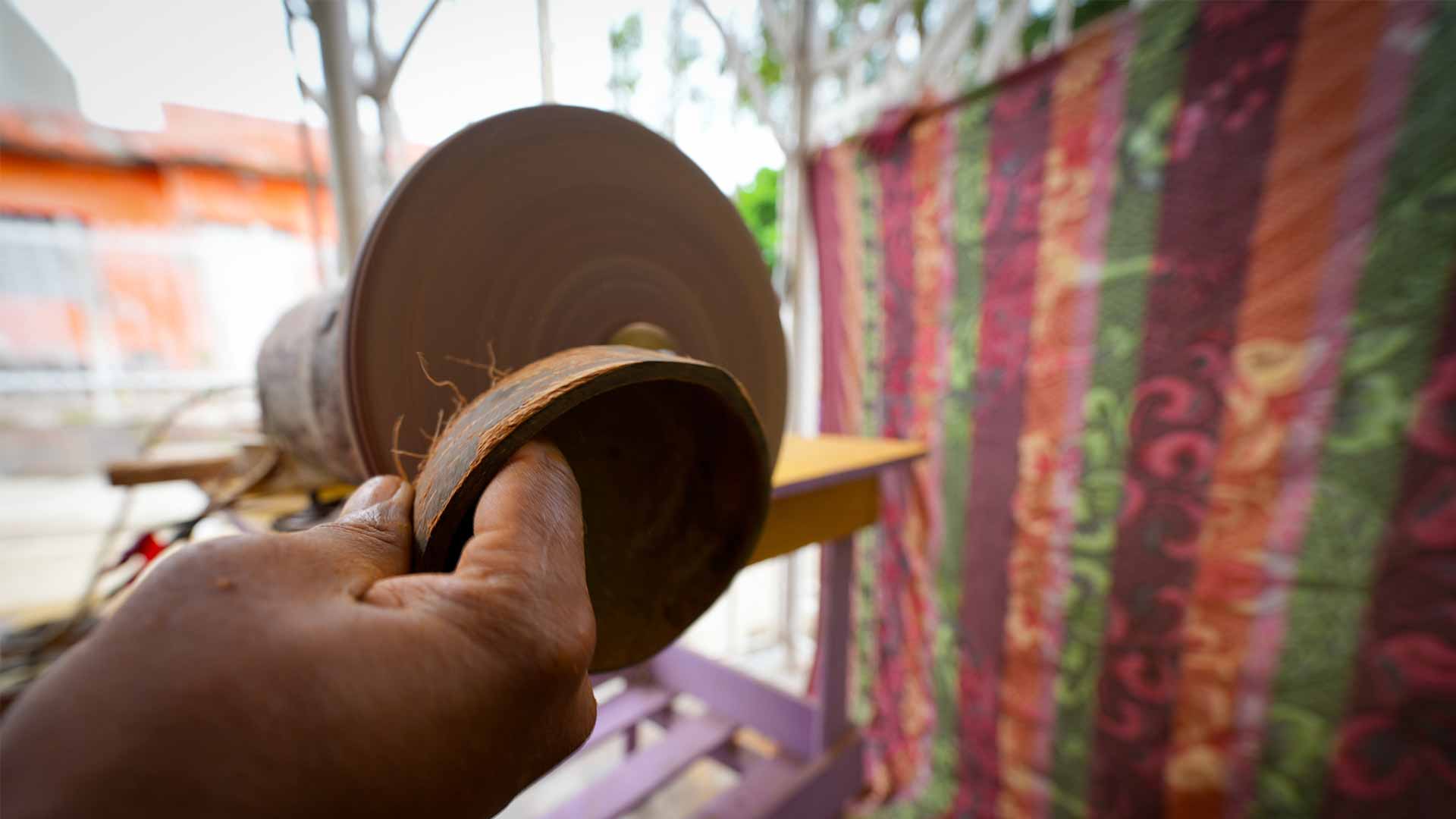
The production process
Maribel and Pablo don’t have a workshop; they work directly on the balcony of their home. They have a few tools and a small machine to sand the coconut. The manufacturing process is quite long, since the nut has to be emptied and then dried to extract the oil residues. It must also be sanded until the shell is smooth. Finally, it needs to be polished to give it the lustrous, natural effect that is so characteristic of coconut. To obtain the final product, a minimum of one hour’s work is required, not counting the drying stage.
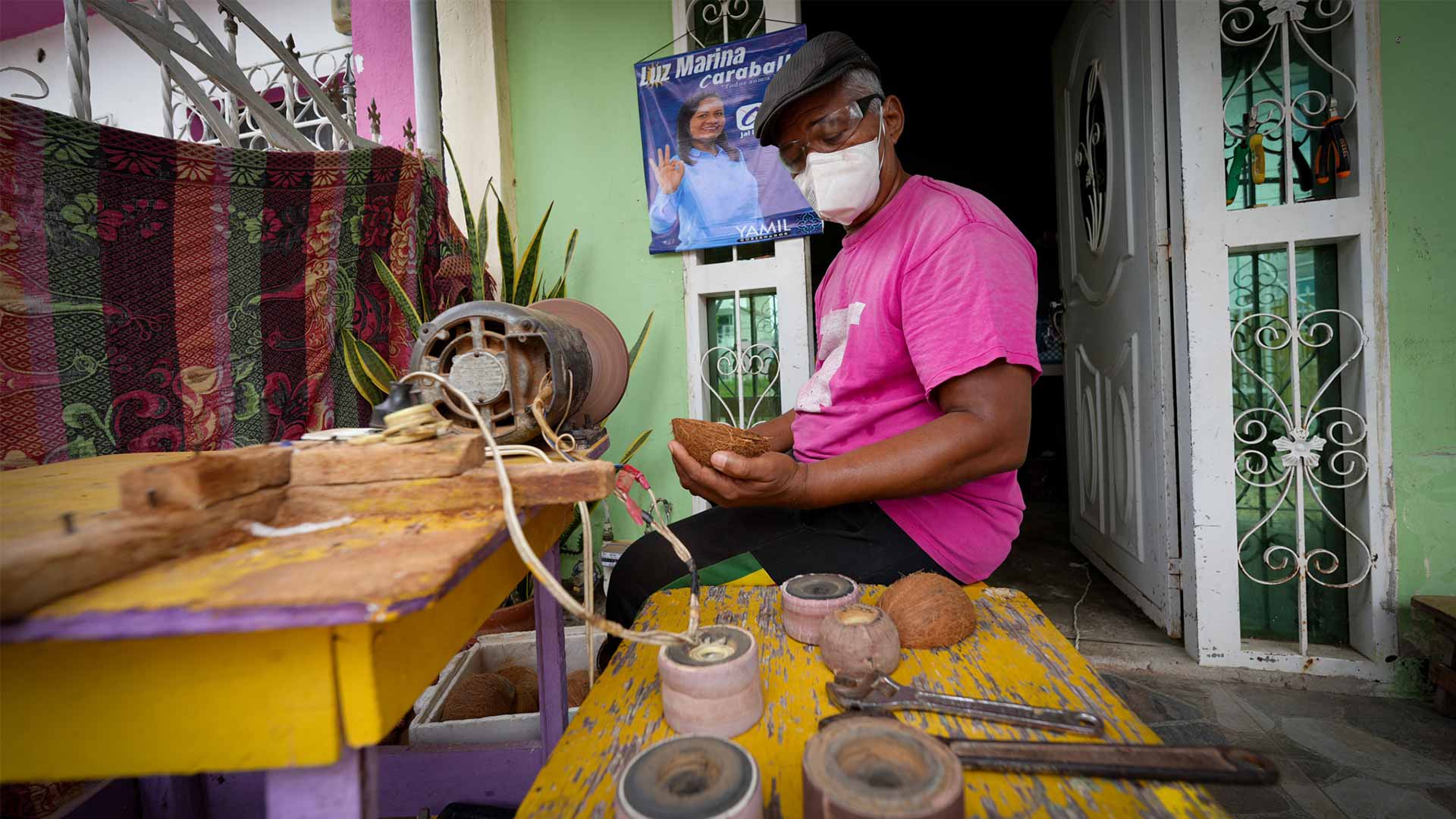
A passionate profession
This craftsman’s job is not always easy, since it requires a lot of time and love for little return on investment. Pablo emphasizes the strong competition from cheap plastic items, despite their considerable impact on the environment. He sometimes says it saddens him to have to compete against big companies who can sell their product for half the price.
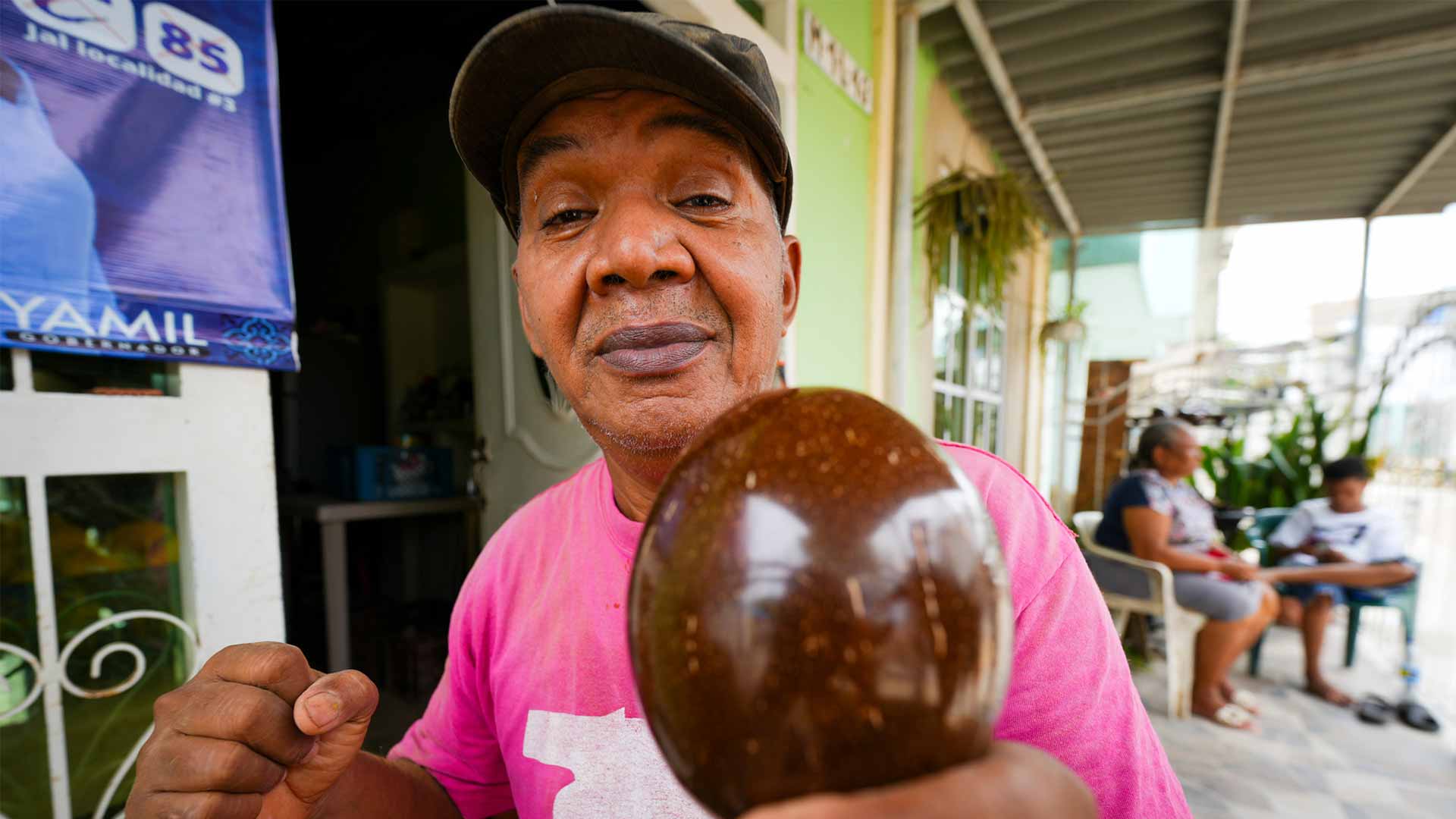
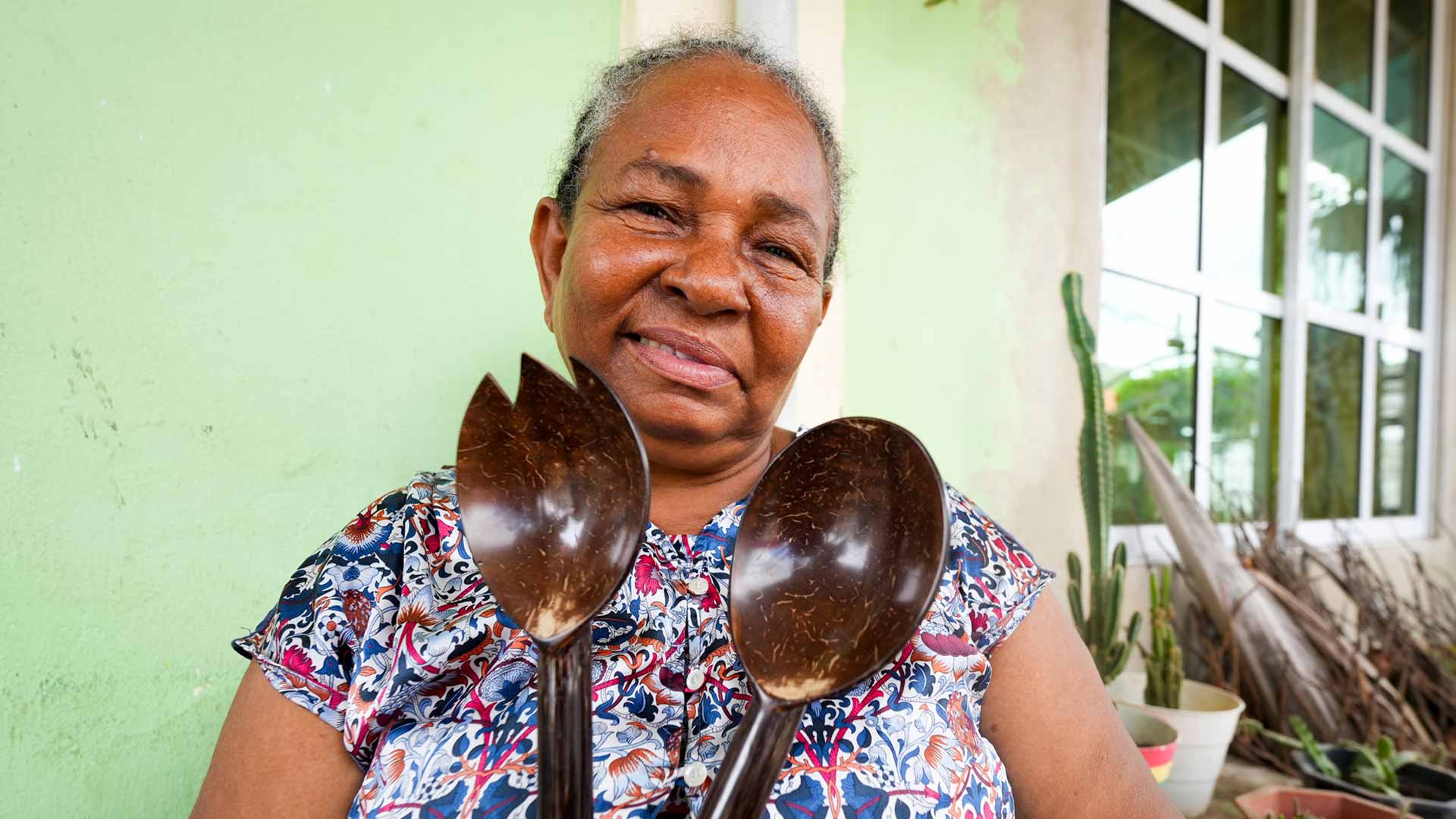
Discover Artesanias Favaber’s creations on Instagram @artesaniasfavaber
Fortunately, their small business still allows them to generate enough income to feed their family and enable their children to continue their education. They sell their products in small tourist shops and also in some of the city’s restaurants and large hotels. Maribel is proud to present her products to us, and hopes that people will adopt coconuts as everyday objects in the kitchen, but also as decoration in the home.
“When I organize special events at home, I use my coconut tableware because it’s pretty and respects the environment”. Maribel points out.
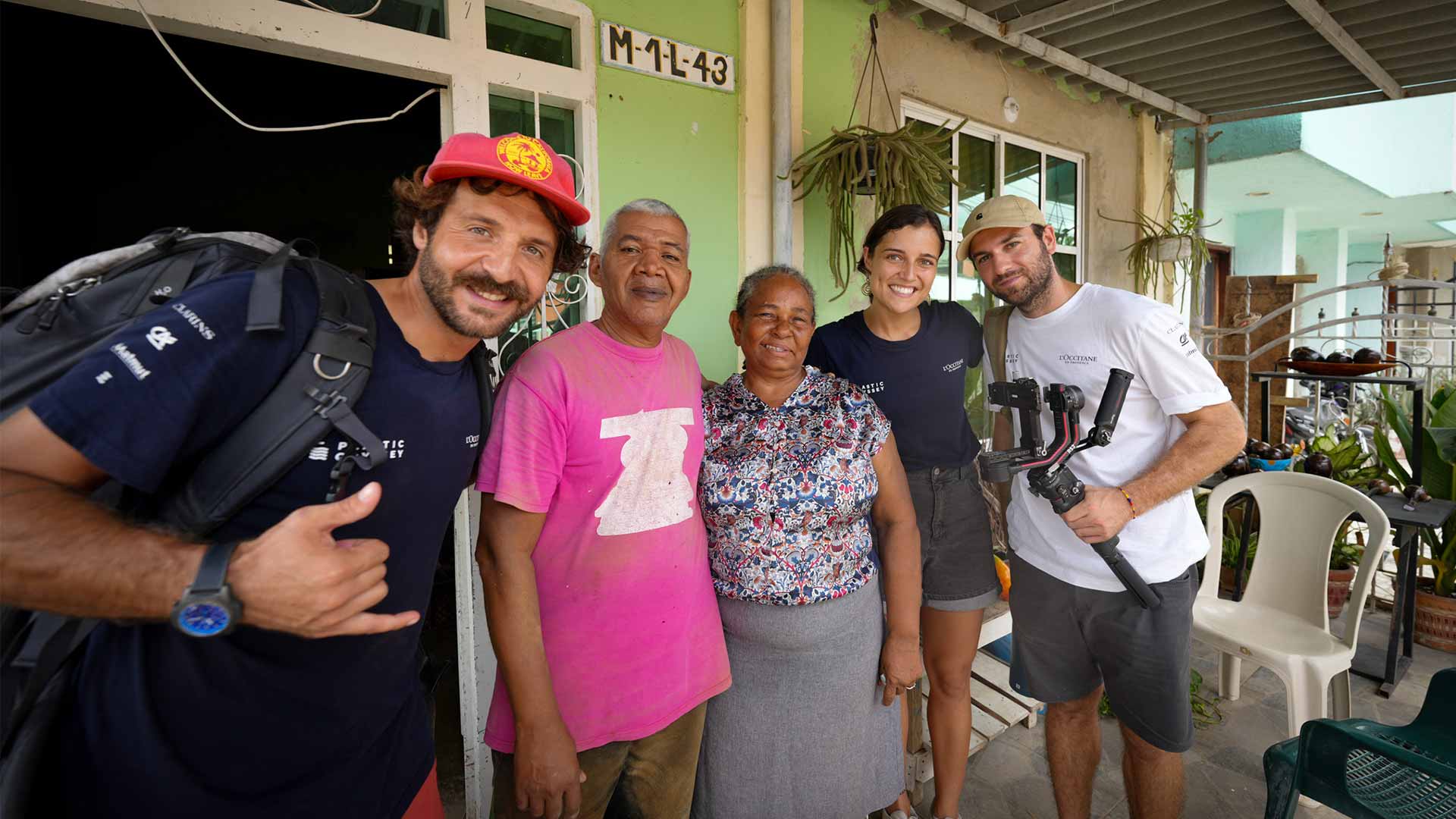

The exhibition that brings together solutions to do without plastic
The Plastic Odyssey Treasure Trunks bring together alternatives and solutions from around the world to reduce plastic pollution in the ocean.
